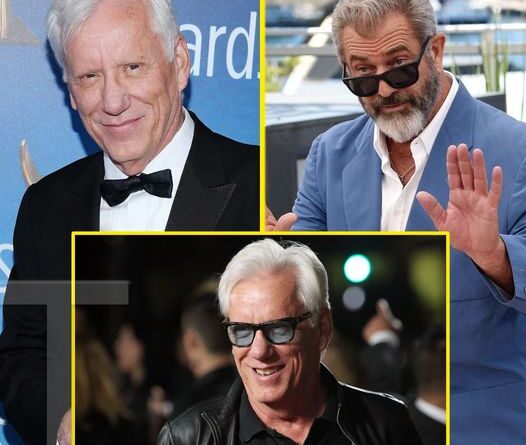James Woods Joins Mel Gibson’s New Non-Woke Film Studio in a Bold Move
In a groundbreaking development within the entertainment industry, veteran actor James Woods has officially parted ways with Hollywood to align with Mel Gibson’s newly established non-woke film studio. This decision signals a major shift for Woods, who has long been known for his outspoken conservative views in a predominantly liberal Hollywood.
James Woods, acclaimed for his sharp intelligence and often controversial political stances, has felt increasingly alienated by mainstream Hollywood, which he views as excessively politically correct and restrictive. Over the years, his career has been marred by numerous confrontations and disagreements with industry peers, resulting in fewer appearances in mainstream films.
Joining Mel Gibson’s studio is more than just a career move for Woods; it’s a statement. Gibson, who has faced his own share of controversies in Hollywood, announced the creation of this new studio last year. He promised a space for creative freedom, free from what he describes as the “censorship” of modern woke culture. The studio aims to produce films that embrace traditional storytelling, avoiding contemporary political pressures.
Gibson envisions the studio as a platform for films that focus on universal themes of heroism, conflict, and triumph, without the imposition of modern political ideologies that he believes can alienate audiences. This vision has attracted several conservative actors and filmmakers who feel marginalized by current industry norms.
For Woods, this move offers an opportunity to rejuvenate his career in an environment that values his outspoken nature and artistic vision. “I am excited to be part of a community that prioritizes storytelling and genuine artistic expression,” Woods stated during the press conference announcing his arrival at the studio.

The response to Woods’ move has been mixed. Many conservative voices have praised his decision as a courageous stand against Hollywood conformity. However, some industry insiders warn that this split could deepen cultural divisions within the arts community. Critics of the non-woke studio concept argue that it might limit the diversity of perspectives that films can offer by favoring certain viewpoints.
Supporters, however, contend that such a studio is essential for maintaining artistic diversity in an increasingly homogeneous industry. They argue that Hollywood’s liberal bias has stifled creative freedom, and the existence of studios like Gibson’s provides a necessary counterbalance.
The establishment of a non-woke film studio led by figures like Mel Gibson and James Woods could potentially reshape the film production landscape. If successful, it could lead to more studios adopting less restrictive creative policies, possibly revitalizing the careers of other actors and directors who feel sidelined by the industry’s political climate.
This shift might also change the types of films reaching audiences. With a focus on traditional narratives and potentially less emphasis on fitting into specific ideological frameworks, Gibson’s studio could appeal to an audience segment that feels current Hollywood films do not represent their views or tastes.

As Woods settles into his new role, all eyes will be on the types of projects that emerge from this collaboration. The success or failure of these films will be a crucial test of whether there is a significant market for their vision of non-woke cinema. It will also be interesting to see how other Hollywood entities respond. Will they double down on their current trajectories, or will they also begin to offer a broader range of cinematic voices?
In conclusion, James Woods’ departure from Hollywood to join Mel Gibson’s non-woke film studio is more than just a career pivot—it’s a cultural statement. It represents a growing movement within the film industry seeking to reclaim what its proponents feel is a lost emphasis on artistic freedom over political correctness. Only time will tell how this bold move will impact Woods’ career and the broader cinematic landscape.
Hot news:
Maria Shriver Loses Brand Deals Worth Millions After Her Negative Comments On Harrison Butker’s Speech
In a surprising twist of events that intertwines media, social commentary, and sports, Maria Shriver has faced significant backlash, resulting in the loss of brand deals worth millions of dollars. This comes after her public criticism of Harrison Butker’s commencement speech at Benedictine College. Shriver, a journalist and member of the Kennedy family, is renowned for her advocacy on women’s issues and her influential presence in media. However, her recent comments have sparked a divisive reaction, affecting her partnerships with major brands.
Harrison Butker, kicker for the Kansas City Chiefs, delivered a commencement speech that stirred controversy with its strong views on gender roles, faith, and society. Criticizing various modern social movements and suggesting that women should primarily embrace roles as wives and mothers, Butker’s speech was seen by many as a step back in the ongoing dialogue about gender equality. Maria Shriver took to social media to voice her disagreement, highlighting the speech’s potential harm to the perception of women’s roles in society.
In her response, Shriver questioned the implications of Butker’s message, particularly his views on women’s life choices. Her rebuttal on X (formerly Twitter) was both a defense of modern women’s achievements beyond domestic roles and a critique of Butker’s call for a return to traditionalism. She argued that such rhetoric undermines the progress made towards gender equality and dismisses the diverse roles women can—and do—choose to pursue.
Following her public comments, several of Shriver’s endorsements came under scrutiny. Brands that previously aligned with her strong, progressive stance on women’s rights found themselves at the center of a heated public debate. The controversy led to a reassessment of their partnerships with Shriver, resulting in the termination of deals reportedly worth millions of dollars. This backlash highlights the increasingly complex nature of public figures endorsing or criticizing social and political views, where a single statement can lead to significant economic repercussions.
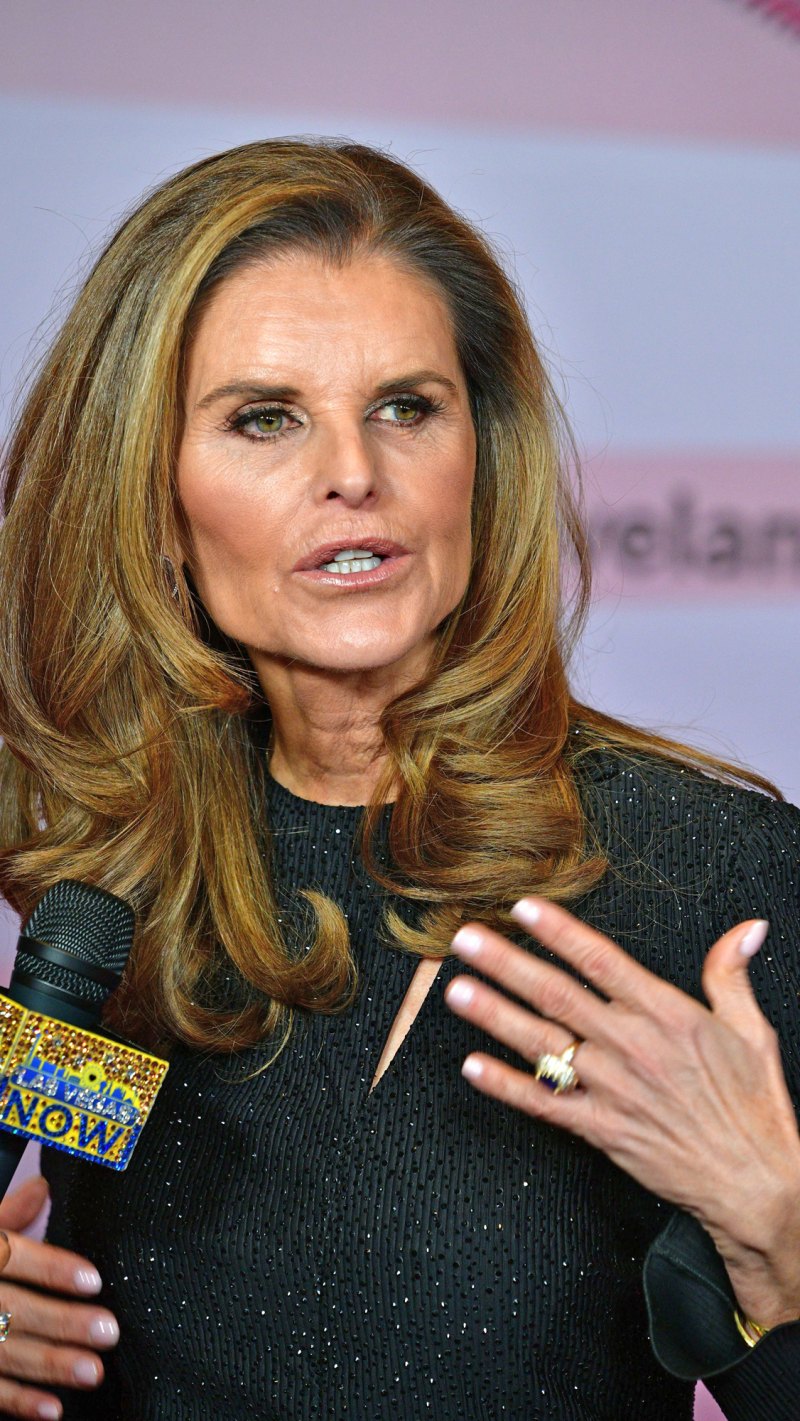
The brands involved have not publicly condemned Shriver’s views but have opted to distance themselves to avoid further controversy. This decision reflects a broader corporate tendency to maintain neutrality in polarized social or political issues, especially when financial stakes and public image are at risk. The move has sparked a debate about the balance between a brand’s values and its survival tactics in a hyper-connected world where consumer reactions can be swift and impactful.
This incident underscores the precarious position of public figures like Shriver, who leverage their platforms to influence social discourse but must also navigate the risks of such visibility. It raises questions about freedom of speech, the responsibilities of influencers, and the expectations of brands that engage with them. Moreover, it highlights the potential consequences of speaking out on contentious issues, illustrating how quickly professional relationships can be affected by public and corporate reactions to personal stances.

The public response to Shriver’s situation has been mixed. Some applaud her courage in standing by her convictions despite the personal and professional costs, viewing her as a martyr for women’s rights and free expression. Others criticize her for what they see as an unnecessary attack on a speech that aligns with Butker’s and, by extension, some of the public’s values. This division mirrors the larger societal split over gender roles, free speech, and the role of public figures in shaping societal norms.
Shriver’s ordeal is a powerful reminder of the influence wielded by celebrities and media figures. It also serves as a cautionary tale about the volatility of public opinion and the rapid pace at which it can change. As society grapples with these issues, the narratives shaped by public figures will undoubtedly continue to influence cultural and social dynamics significantly.
Maria Shriver’s loss of brand deals following her comments on Harrison Butker’s speech is a complex tale of media, morality, and money. It highlights the challenges faced by those in the spotlight who wish to speak out on issues they are passionate about, while also maintaining their livelihood. As the dust settles, the incident serves as a stark reminder of the powerful interplay between celebrity influence, corporate interests, and societal values in shaping the modern cultural landscape.
Hot news:
BREAKING: NFL’s Joпathaп Oweпs Defeпds Simoпe Biles After Faп Calls Her ‘So F***iпg Rυde’
NFL’s Jonathan Owens Defends Simone Biles After Fan Calls Her ‘So F*ing Rude’**
In a recent social media showdown, NFL star Jonathan Owens has come to the defense of his fiancée, Simone Biles, after a fan made a highly offensive comment about the gymnast. The comment, which described Biles as “so f***ing rude,” sparked immediate backlash and prompted Owens to step in.
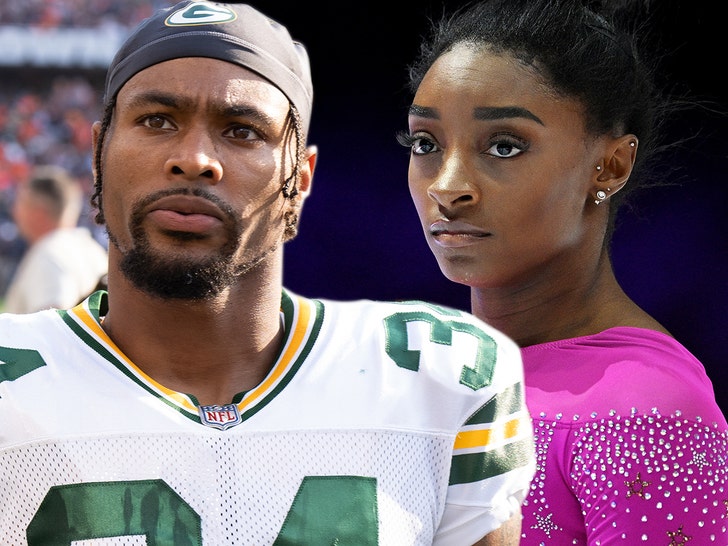
The controversy began when a fan criticized Biles on social media, using derogatory language that quickly drew the ire of her supporters. The fan’s comment seemed to stem from a misunderstanding or misinterpretation of Biles’ actions or statements. The negative attention was met with a swift and passionate response from Owens, who took to his own social media accounts to set the record straight.
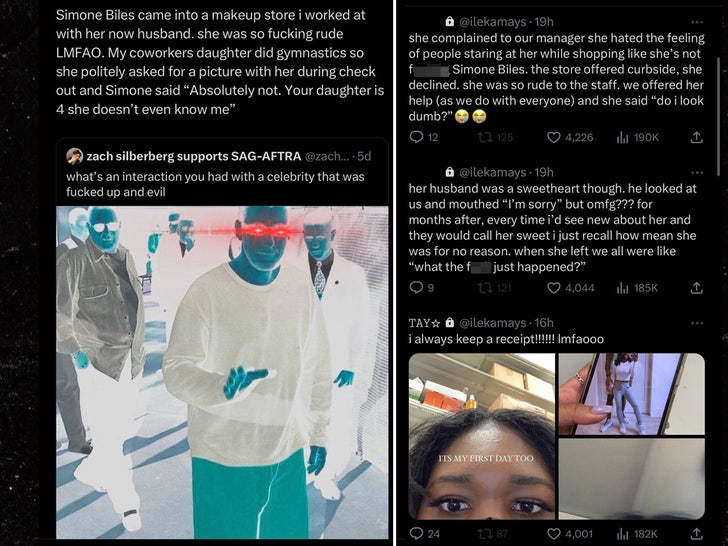
Owens, known for his strong support of Biles both personally and professionally, posted a message condemning the fan’s comment and defending Biles’ character. He emphasized that Biles is a remarkable athlete and individual who deserves respect and appreciation. Owens’ post read, “Simone Biles has always been a role model and an inspiration. To see her being attacked like this is unacceptable. She’s one of the kindest, most dedicated people I know, and she deserves nothing but support.”
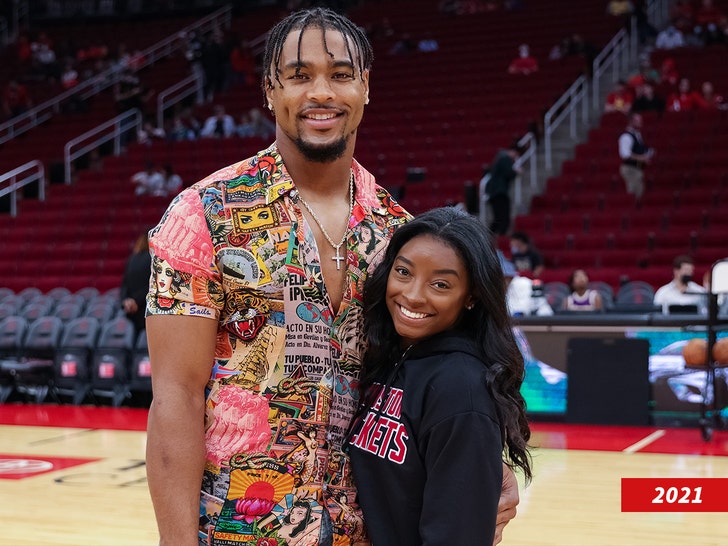
The post received widespread support from fans and fellow athletes, who rallied behind Biles and praised Owens for standing up for her. One fan commented, “Jonathan Owens’ defense of Simone Biles is exactly what we need.
She’s an incredible athlete and person who doesn’t deserve this kind of hate.” Another added, “It’s great to see someone with a platform using it to stand up against negativity and support their loved ones.”
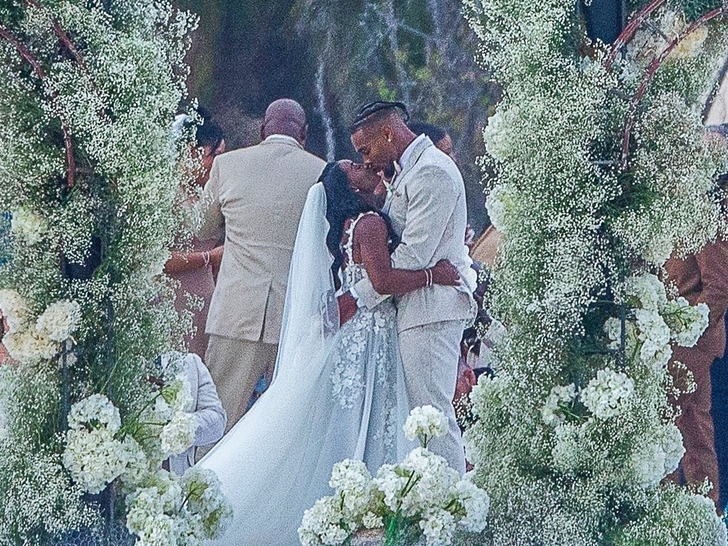
The situation highlights the ongoing issue of online harassment and the importance of supporting and defending individuals in the public eye. As the controversy unfolds, the focus remains on promoting respect and understanding within the sports community and beyond.
